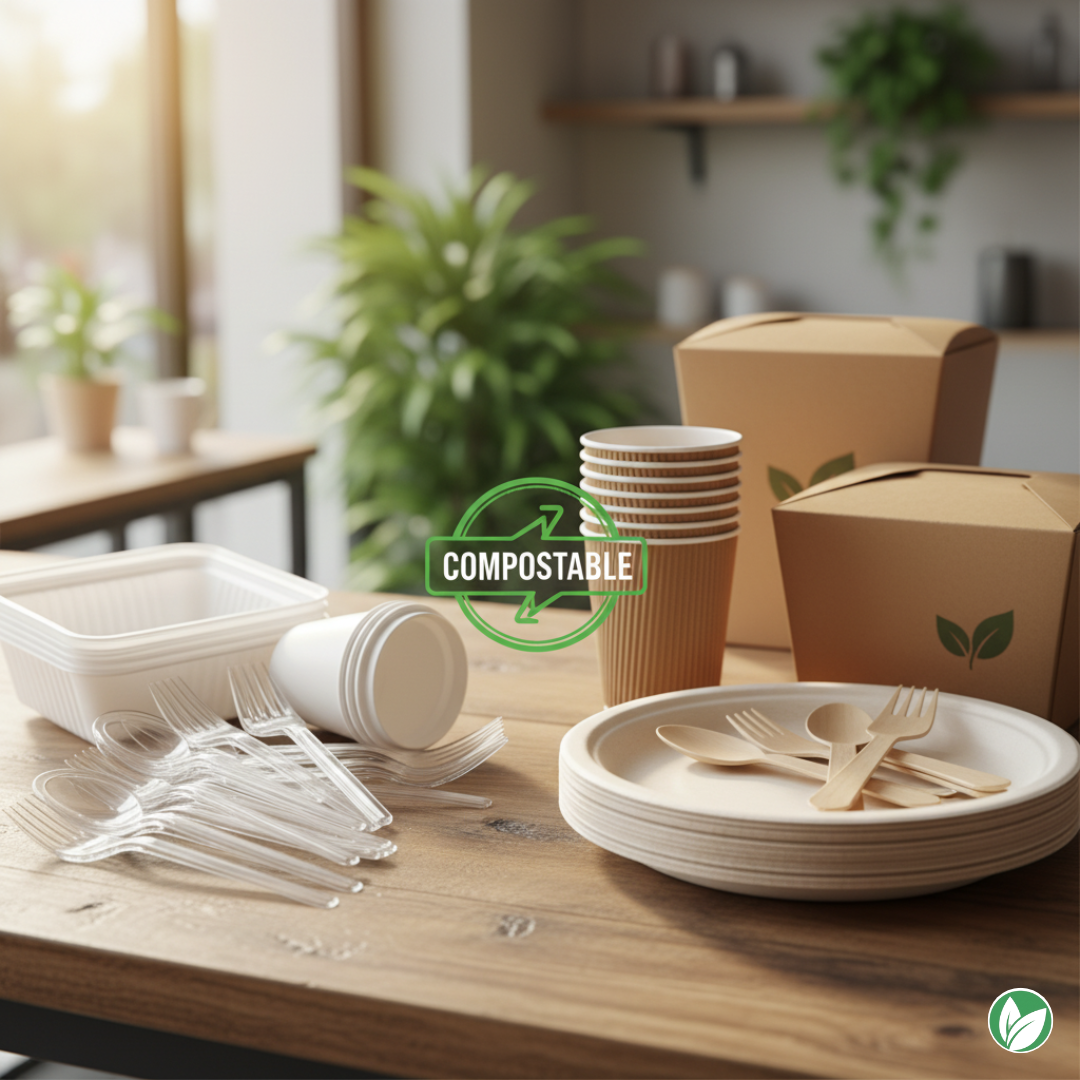
How Long Does It Take for Compostable Products to Decompose?
Share
As eco-conscious consumers and businesses switch from plastic to compostable products, a common question arises: how long does it actually take for these items to break down? Understanding the decomposition timeline helps you manage waste properly and make informed decisions about the products you use.
What Makes a Product Compostable?
Compostable products are made from natural materials such as sugarcane, bamboo, cornstarch, palm leaves, or paper. Unlike plastics, these materials are designed to break down completely into natural elements—water, carbon dioxide, and biomass—when exposed to the right environmental conditions.
It’s important to note that “compostable” does not mean the same as “biodegradable.” While biodegradable items will eventually break down, compostable products are specifically certified to decompose within a predictable timeframe in commercial or home compost systems.
Factors That Affect Decomposition Time
The time it takes for compostable products to decompose depends on several factors:
1. Material Composition
- Sugarcane bagasse plates and bowls typically break down in 90–180 days in a compost environment.
- Bamboo or palm leaf products may take 6–12 months depending on thickness.
- Compostable cups made from PLA (polylactic acid) often require industrial composting conditions to fully decompose.
2. Composting Environment
- Commercial composting facilities maintain high temperatures and optimal moisture, accelerating decomposition.
- Home composting may take longer, especially in cooler or drier conditions.
3. Thickness and Usage
- Thicker plates or containers take longer to break down than thinner items.
- Food residue can sometimes help decomposition because it adds organic matter to the compost.
4. Temperature and Moisture
- Warm, moist conditions speed up the breakdown process.
- Dry or cold conditions slow decomposition significantly.
Average Decomposition Times
Here’s a rough guide for common compostable items:
- Sugarcane or Palm Leaf Plates: 3–6 months in home compost; 1–3 months in commercial composting.
- Bamboo Utensils: 6–12 months, depending on thickness.
- Compostable Cups (PLA): 6 months in industrial composting; longer in home composting.
- Paper Napkins or Bags: 2–4 weeks, as they are thin and highly organic.
These timelines show that while compostable products break down faster than plastics, proper disposal is key. Throwing them in the trash prevents decomposition and defeats the purpose.
Tips for Proper Composting of Eco-Friendly Products
1. Use a Certified Compost Bin
- Check if your product is certified for home or commercial composting.
2. Keep Items Moist
- Composting works best with a balanced mix of green (food scraps) and brown (dry leaves, cardboard) material.
3. Cut Large Items
- Breaking down thicker items into smaller pieces speeds up decomposition.
4. Avoid Contamination
- Remove non-compostable components like stickers, plastic windows, or metal staples.
Conclusion
Compostable products are a practical solution to reduce plastic waste, but understanding how long they take to decompose ensures they truly benefit the environment. With proper composting practices, items like sugarcane plates, bamboo utensils, and compostable cups can return to the earth within months, unlike plastics that linger for centuries.
Switching to compostable products is not just about reducing waste—it’s about making choices that actively support a healthier planet. By combining biodegradable items with correct composting methods, both businesses and households can make a meaningful environmental impact.
